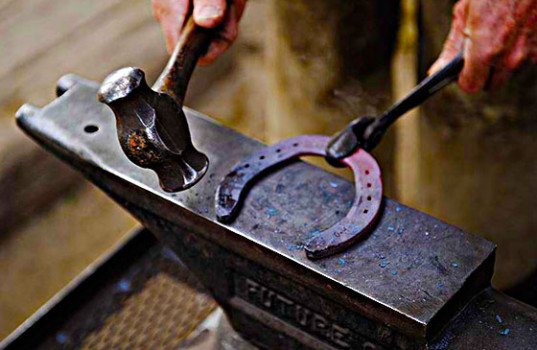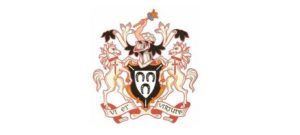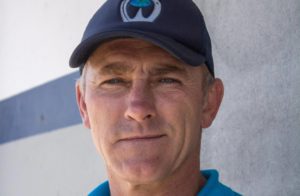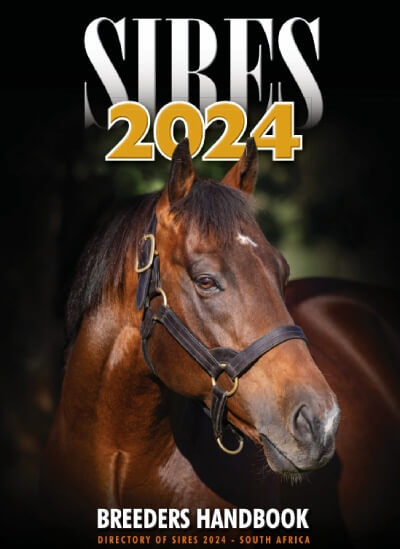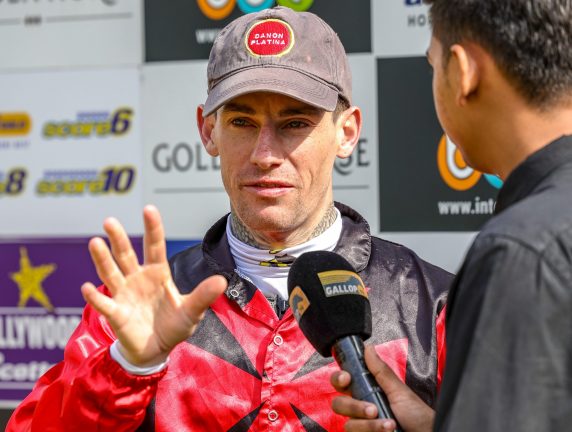We would like to congratulate Robbie Miller and John Murdoch on attaining their Associateships with the Worshipful Company of Farriers (AWCF) and Scott Borland, Tom Runnalls, Chris Diedericks, Hannes Snyman and Sean Eggersglutz on passing their WCF Diplomas.
The qualifications are not only personal achievements for all involved, they are a milestone for the South African farriery profession as it is the first time the Worshipful Company of Farriers (WCF) conducted exams in this country. We got SAAPF’s Vice Chairman, Robbie Miller, to tell us more.
Robbie met Steven Newman during a trip to the USA a few years ago where they were both helping to examine farrier candidates. The two hit it off and have remained friends ever since. “Steven is from the UK,” explains Robbie. “He’s ex-military and was with the Royal Household Cavalry for 24 years. Steven is a Fellow of the WCF, which is the most senior qualification that the WCF offers. There are only a little over 30 FWCF’s in the world,” continues Robbie. About 18 months ago, Steven said it would be a good idea to get the WCF here. I always thought being able to get a qualification like that was unattainable, so I jumped at the opportunity. It’s the first time they have ever held exams in South Africa, so it was a little piece of history in the making.”
Worshipful Company of Farriers
The Worshipful Company of Farriers (WCF) has been around since 1356, received a Royal Charter of incorporation in 1674 and their system of training and qualification is the most widely recognised and respected in the world.
To qualify as a WCF farrier, aspirant candidates are required to complete a one year forging course before being allowed to start working on horses. Candidates then need to complete a 4,5 year apprenticeship before undertaking the WCF Diploma exam as a minimum qualification. For those wanting to progress further, the WCF offers their Associate WCF qualification for Diploma holders with a minimum of two years additional practical experience. The final and most senior qualification is the FWCF exam, which qualifies candidates as a Fellow of the Worshipful Company of Farriers, which requires another two years experience as well as a written thesis.
Local Equivalent
While the British system is well established and recognised, formal training and qualification for auxiliary equine practitioners in South Africa is still a work in progress. However, it is something Robbie has been working hard to remedy and through the establishment of South African Association of Professional Farriers (SAAPF) and the implementation of their Farrier International Testing System (FITS).
FITS consists of three levels – after a three year apprenticeship, there’s the Certified Farrier (CF) or entry level, then the Certified Professional Farrier (CPF) qualification and lastly the Advanced Skilled Farrier (ASF) level. The first exams were held in 2010 and are now held annually and judged by internationally recognised authorities. At each level, the exam consists of 3 modules and includes a written paper, a practical shoeing portion, and lastly a blacksmithing portion. Robbie is proud of the fact that the ASF is judged one of the toughest practical exams in the world. It requires a lot of time, money and resources, but the South African farriery community feels it is well worth it to help raise and standardise the levels farriery across the country. ”
Why this exam?
While it is easy to apply the system to farriers wanting to start their training, it’s a little harder to fit established practitioners into the system retrospectively. However, to allow established farriers who haven’t qualified under the British system, the AWC has developed a ‘fast track’ system for farriers with the requisite skills and experience to skip the Diploma exam and go straight to the Associate exam.
“British farriery is the standard by which the rest of the world measures itself,” explains Robbie. “To host WCF exams here and offer local farriers the opportunity to attain an internationally recognised qualification is probably one of the most historic events in South African farriery. It meant a lot to the guys setting the paper as well as to those sitting the exam.”
If you are not willing to learn, no-one can help you. If you are determined to learn, no-one can stop you
Hosting the WCF in South Africa required overcoming a number of logistical hurdles, including rounding up enough exam candidates to make the initiative worthwhile, but round them up they did. In the end, there were nine candidates for the Diploma exam, Robbie and John Murdoch applied to sit the Associate exam.
Steven Newman, who sets the written papers for the WCF exams, helped the South Africans prepare, setting them weekly practice questions as well as coming out to South Africa in May to conduct a 4 day practical course. “There’s a nice bit of history in that Steven was trained by a South African farrier called Ivan Bell, continues Robbie. “Now the process has come full circle with Stephen preparing and training up us South Africans – it’s quite special.”
Collaboration
The exams were hosted at the SA Jockey Academy in Summerveld which is the SAAPF’s standard examination venue. Robbie explains, “There’s a nice symbiotic relationship with SAJA Headmaster Graham Bailey in that if any apprentices get too big or fall by wayside, and it happens often, our connection to the Jockey Academy has created an avenue for any kids wanting to become farriers. In many ways, it’s a natural extension. A lot of retired jockeys want to stay in the industry and many go on to become trainers or stipes – this is another avenue for them to stay involved. It’s a really cool thing we’ve got going on with them.”
Exam
Exam dates were set for 8, 9 and 10 September 2018 and were conducted by a four strong WCF examination team of FWCF’s Simon Curtis and Stewart Armstrong, veterinary surgeon James Sutton and Farrier Council registrar, Jenny Ifould.
Day 1 was devoted to the written papers for both Diploma and Associate candidates. Diploma hopefuls had a set of 6 questions which they had to answer in the allotted time of 2,5 hours. The paper for the Associate candidates consisted of 6 questions of which they were required to answer 5. This was followed by horse assessments and a display of shoes with a panel discussion and questions covering the shoes, anatomy and pathology.
Day 2 was dedicated to the Diploma candidates and focussed on shoeing, horse assessments and show boards of the shoes they had produced. The final day was dedicated to the Associate candidates with a 2 hour shoeing session, an exam on modern materials as well as a morbid specimen section. “It was a very complete exam, and the standard was set extremely high,” says Robbie.
The group achieved an extraordinarily high pass rate with five of the diploma candidates (Scott Borland, Tom Runnals, Chris Diedericks, Hannes Snyman and Sean Eggersglutz) attaining outright passes and Steve Blakey, Kobus Els and Jacques Kruger each attaining a partial pass. Both Robbie and John Murdoch passed their Associate on the first attempt.
What It Means to Robbie
“I get quite emotional,” admits Robbie. “It’s been a lifelong dream to achieve this qualification and is something I never thought I would ever be in a position to do. It means a helluva lot.”
The fact that the South African candidates achieved such a high pass rate is particularly meaningful as an endorsement of the standards the SAAPF and FITS are implementing in their local training and qualification programme.
“I’ve been through the FITS ASF in 2011 and it was a really good stepping stone to prepare me for the higher level British exam. That tells you that SA farriers and our training system is comparable to the best in the world. I don’t really sit and think about it a whole lot, but it makes me really proud to have been involved in that process and be part of the group of farriers we currently have in this country.”
“When you look at what people spend on horses, we have to step up,” he states firmly. “We are starting to instil the desire and need for continued education and the skill level of farriery has skyrocketed over the last 6-8 years. Thanks to the SAAPF and FITS I’d say the farriers we currently have in this country are more qualified and knowledgeable than ever. With the WCF exams, hopefully it will take things to another level. People using farriers who have come through our system can rest assured that their horses are in good hands.”
Looking ahead
Although Robbie is already proudly wearing his WCF beanie, the official award ceremony will only be conducted at the Royal Artillery Barracks in London in mid-January 2019. However, come hell or high water, Robbie says he will be there in person to collect it.


